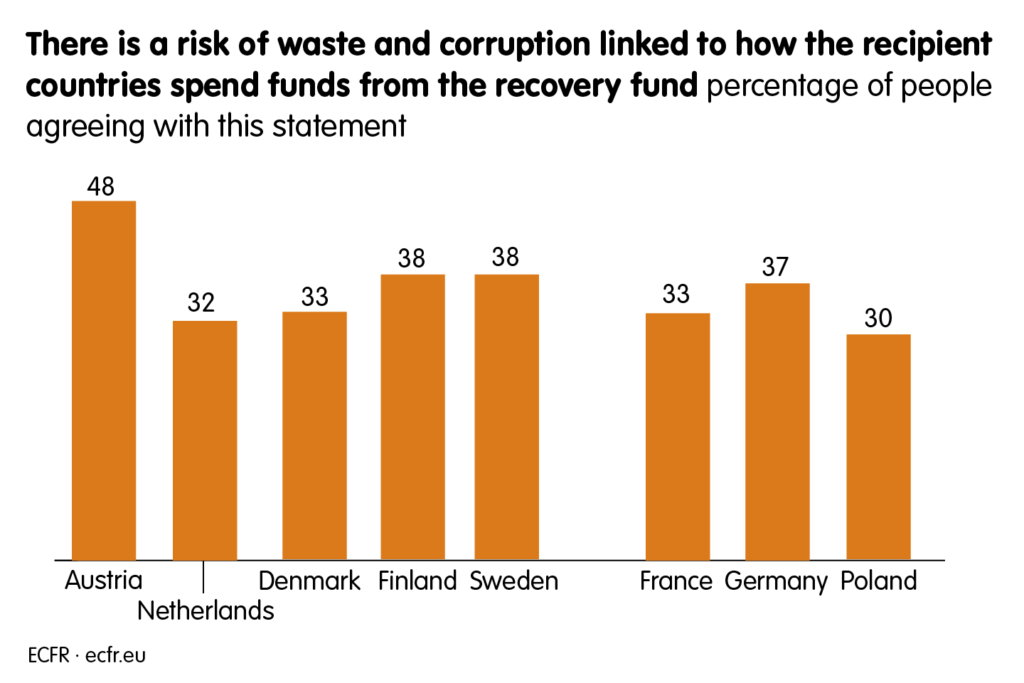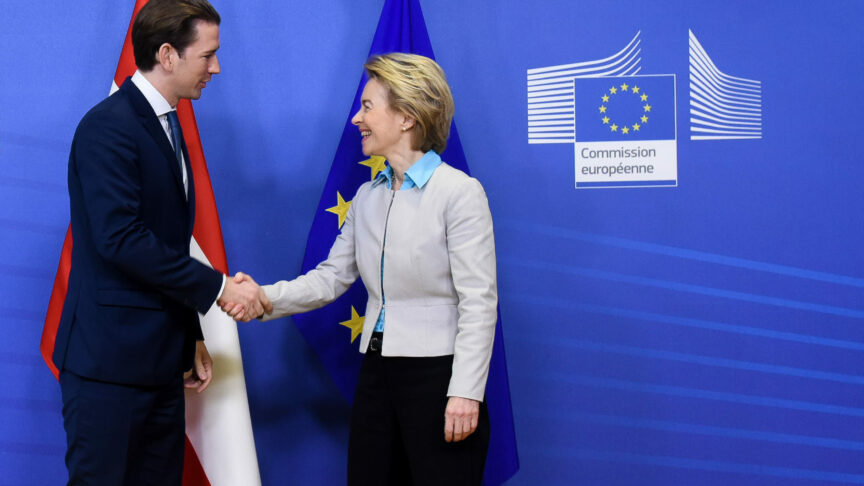Why the rule of law matters so much to Austria
Austria is surrounded by neighbours whose failings on the rule of law could cause trouble for Austria itself. For this reason, stronger EU mechanisms would suit Vienna’s strategic positioning.
In this year’s negotiations on the European Union’s 2021-2027 multiannual financial framework and the architecture of the covid-19 recovery fund, Austria confidently stepped into the spotlight and framed the discussion together with the Netherlands, Denmark, Sweden, and occasionally Finland – the so-called ‘frugal states’. What differentiated Austria from the other frugals is its recurring – but to a certain extent guilt-driven – demand for rule of law criteria to be closely linked to the EU’s budget. For Vienna, it is not only a question of where the money goes, but also what the overall situation in the respective member states is. If member states are failing to uphold the rule of law and other democratic principles, it reasons, funds should be withheld from them. But what really lies beneath the Austrian government’s strong determination for the EU to use rule of law mechanisms in case of breaches by member states?
Austria’s focus is not just driven by ideological considerations; it is equally motivated by practical reasons, where geographical location and economic factors play a prominent role. Austria’s overall financial situation is good compared to other EU countries and, according to ECFR’s public opinion research into what role the frugal states could play after the EU recovery deal, 30 per cent of Austrians believe that the EU contributes significantly to their country’s economic prosperity – a figure slightly higher than with the rest of the frugals.

However, its central location and considerable economic dependence on central and eastern Europe mean that Austria’s economy is more vulnerable to cases of corruption and rule of law violations in its neighbourhood. Forty-eight per cent of the general public already doubt the effectiveness of the recovery fund; they are concerned about corruption and how recipient countries would spend the money. This is by far the highest share among the frugal states. For Austria, the rule of law and the vitality of the European single market go hand in hand. However, as ECFR’s Coalition Explorer shows, when it comes to consultations on various European policy matters, Hungary, the Czech Republic, Slovenia, Slovakia, and Croatia often turn to Austria. Hence, open dialogue and good neighbourly relations are of utmost importance to Austria, as it does not want to imperil its status in the region. This naturally puts Vienna in a difficult position, as it can be a difficult balancing act to address concerns about neighbours’ democratic principles while maintaining friendly relations with them.
For Austria, the rule of law and the vitality of the European single market go hand in hand
Hungary is a particular case in point: in March this year, during the outbreak of covid-19, the prime minister, Viktor Orban, introduced an emergency law that gave him extensive powers, leading several EU member states to promptly issue a joint statement on the matter. Austria, however, did not add its signature, stating that it preferred to seek a constructive dialogue instead. Its refusal stems partly from its special historical relationship with Hungary, as well as Vienna’s own image as a bridge-builder between east and west. The most decisive factor, however, might have been economic: Austria is the third-largest investor in neighbouring Hungary, which in 2019 was the most important market for Austrian exports across central and eastern Europe, and the fourth most important for Austria in the whole EU. By way of comparison, no central or eastern European country features in Finland’s and Sweden’s top ten export partners; for Denmark and the Netherlands, only Poland makes the top ten. Although current developments with regards to the rule of law are closely monitored by the EU, there remains a residual (political) risk for Austrian investors.
Therefore, while ensuring that Austria remains surrounded by stable democratic countries, Vienna is convinced that a stronger supranational mechanism reinforcing the protection of the rule of law would also benefit the European project as a whole. This is not least because of Austria being confronted with charges of illiberalism not long ago. In 2018, during the previous government, the People’s Party formed a coalition with the far-right Freedom Party, which resulted in political chaos and damaged Austria’s international reputation; a set of circumstances that will not be forgotten easily. Thus, if clear and effective coercive measures regarding the protection of the rule of law were in place on an EU level, Austria would better protect itself and at the same time not be at so much at risk of jeopardising its own relationship for the sake of instructing its neighbours on democratic principles.
Austria has stepped up its engagement on EU matters of late and it would, according to its chancellor, Sebastian Kurz, even be willing to push for a new European treaty in order to strengthen the EU. Kurz has argued that much has changed since the 2007 Lisbon Treaty, and that the EU needs greater subsidiarity and a more proactive stance on issues like migration and the rule of law.
Austria should continue building on its lengthy experience as a bridge-builder, putting more effort into finding common ground with other member states. But it could also take a firmer stance on its neighbours when necessary. This way, Vienna could actively help transform the EU in the aftermath of the pandemic.
Sofia Maria Satanakis has been a research fellow at the AIES since 2013. Her research covers the topic of European Integration, with a special focus on the EU’s Common Foreign and Security Policy (CFSP) and Common Security and Defense Policy (CSDP).
The European Council on Foreign Relations does not take collective positions. ECFR publications only represent the views of their individual authors.



